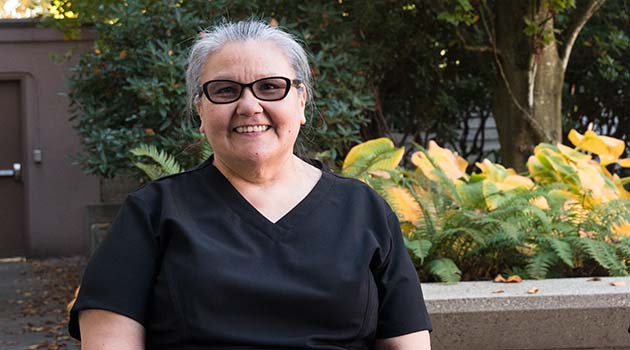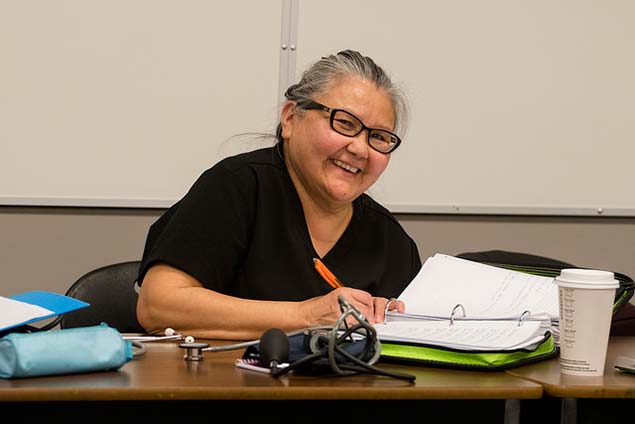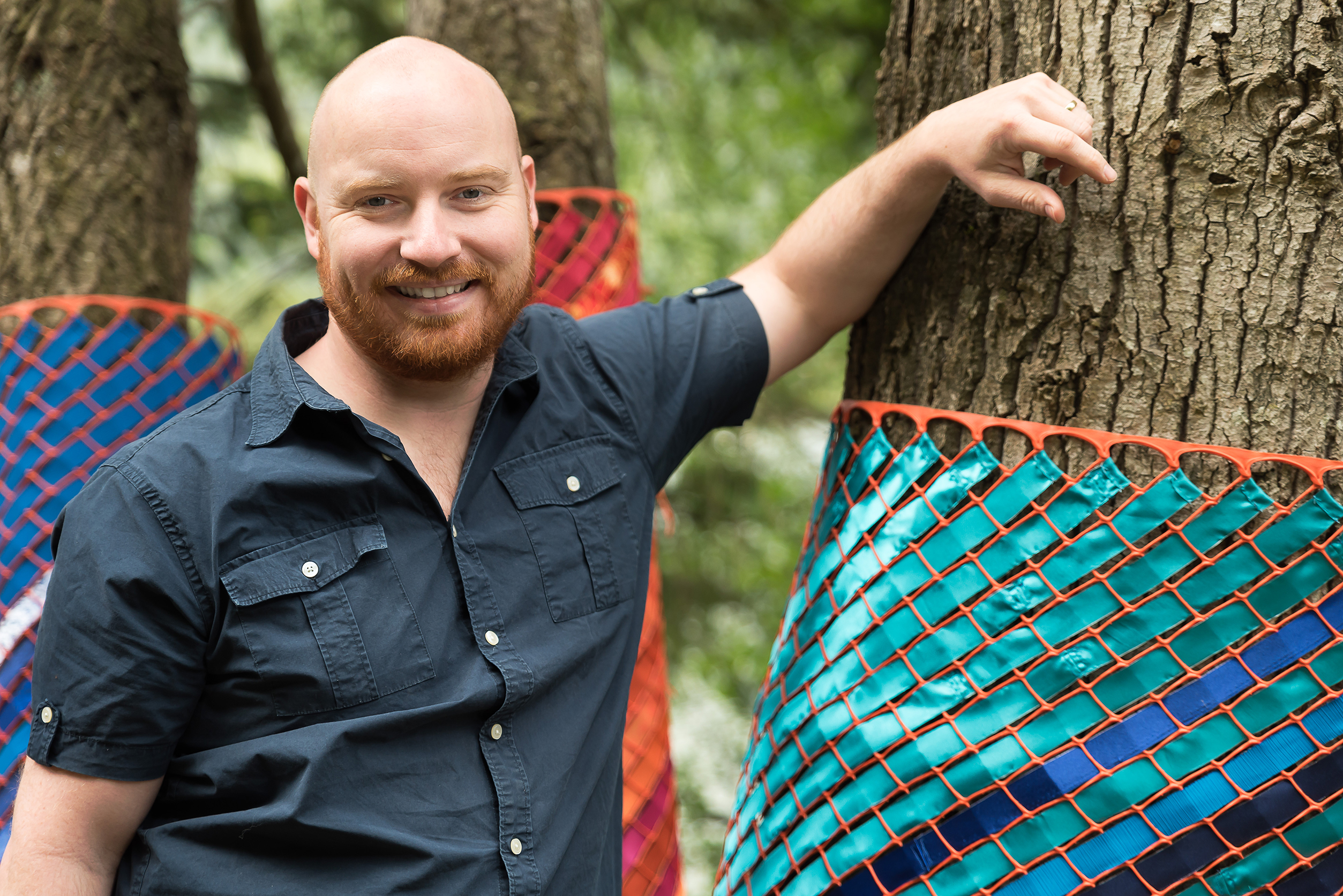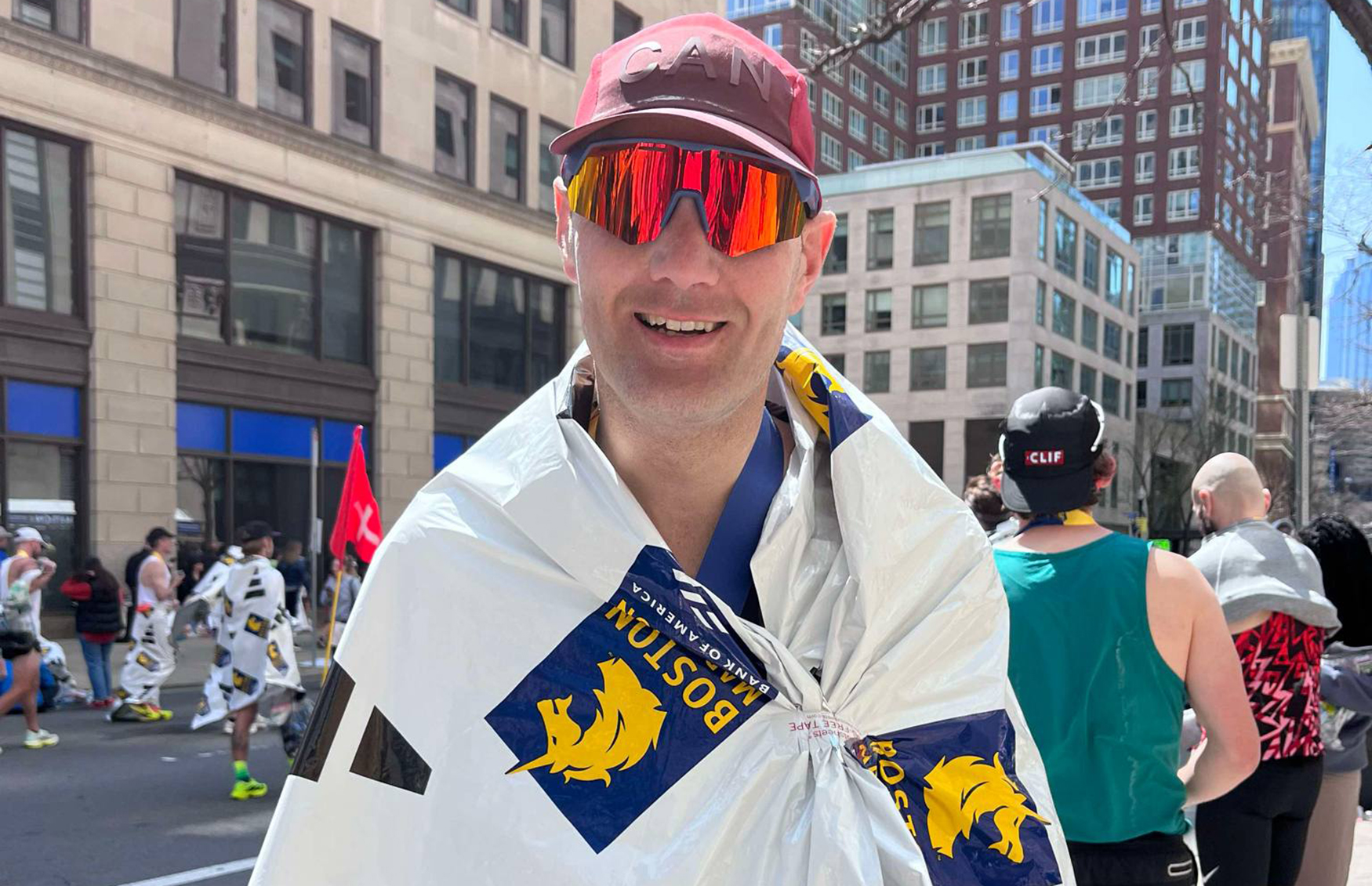Adding certification to experience as a medical office assistant
Shirlana Julian is the oldest in a class of 17 medical office assistants in training.
Unlike her classmates, who take the UFV Continuing Education’s Medical Office Assistant (MOA) program to launch a career in the field, Shirlana has worked in this role for two years already. Now she would like to become a certified MOA and build her skill set. “I have the title and experience of an MOA,” she says, “but I want to back it up with a certificate. And many people have told me that certification from UFV is the best.”
Life path
Raised near the banks of the Fraser River in North Abbotsford, Shirlana is a member of Matsqui First Nation, one of the bands that form the Stó:lō Nation.
“I left the Fraser Valley when my daughter was five,” Shirlana recounts. “We moved to Prince George to find work and stayed there 17 years.”
Branching out into health care
But in 2014, Shirlana came back home, where she landed a position as a community health worker.
Even though she had been away, Shirlana had deep roots in her community. She grew up with her grandparents, Martin and Flora Julian, who were respected elders. In her role as a community health worker, she taps into her lifelong connections to help people access health care information and services.
When the Matsqui First Nation opened a clinic at the band office in 2016, Shirlana’s community health experience made her a natural fit for the role of medical office assistant.
“The clinic is open two days a week,” Shirlana says. “Every week, we have 20 or more people come to see the nurse practitioner for check-ups, prescription renewals, or referrals.”
Improving access to health care services
Because of social and health inequalities, First Nations people have higher mortality rates and a lower life expectancy than other Canadians. Having a clinic in the community helps make health services more accessible.
“There’s no bus service to our community,” Shirlana points out. “To use medical services in Abbotsford, band members either have to walk five kilometres to Matsqui Village to catch a bus or someone has to drive them to the city. That’s an obstacle that keeps many of them from getting help when they need it.”
Shirlana is thankful that her band is funding her MOA studies. The investment is yielding results, as she can apply what she learns on the job right away. “Furthering my studies is helping me in my role as a working medical office assistant,” Shirlana says. “What I am learning really applies to my position’s clinical and clerical aspects. It is helping me become better at doing my duties. For example, I’m learning different functions I can use with OSCAR EMR software to handle electronic medical records.”
Professional and personal growth
Shirlana may feel less confident about her computer knowledge than her younger classmates, but she is game to learn. “I go to the younger girls in the class to ask for help when I don’t remember which buttons I’m supposed to push,” she laughs.
“Instructors are also very helpful and understanding,” Shirlana adds. “There is only 17 people in the class so they can give us personal attention and address problems right away.”
The class meets face-to-face twice a week and the rest of the program can be completed online. This format has allowed Shirlana to balance her studies with her responsibilities as a medical office assistant and community health worker. “Having some of the course work online has really helped me manage my schedule,” she notes.
On a personal level, the program has enriched Shirlana’s life. “I was nervous about going back to school after a very long time,” she says. “But I’m learning I can push myself a lot more and be less anxious. At times, it can be overwhelming to juggle work and school, but overall, I am doing okay!”
UFV saves two seats in every course and program for Indigenous learners who apply a t least six weeks before classes start. Ask if your work experience can count towards meeting entrance requirements.Train as a medical office assistant






